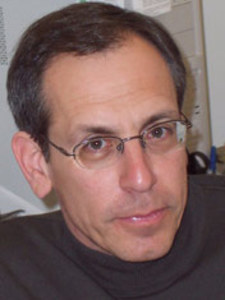Twenty years ago, Canadians awoke to a historic surprise. While they were sleeping, their first ministers were meeting privately in the woods, remaking the country.
At the end of their long day's journey into the night, the premiers and the prime minister would emerge proud and confident. One by one, they would fix their feet triumphantly before the microphones and declare something strange and wondrous: a new constitution and a new Canada.
They called their covenant the Meech Lake Accord, after that footprint of water in the Gatineau Hills of Quebec where they had gathered. Once just another pretty lake known for its nude bathers, Meech Lake would become synonymous with secrecy, audacity, acrimony and treachery.
For the next three years, Canada passed through one of the greatest crises in its history. What began as a quiet, modest exercise in renewal ended with some predicting the end of Canada. The accord was about rights and powers, yes; more broadly, it was about the kind of country that we wanted to be.
Two decades later, these questions remain unresolved and unresolvable. Astonishingly, though, some are suggesting that we reopen the Constitution, which would be as much folly today as it was then.
Let us remind ourselves of what happened at Meech Lake on April 30, 1987.
Since the Quebec government of Robert Bourassa had floated its proposals for constitutional change in 1986, there had been months of low-level intergovernmental talks. Brian Mulroney worried that his native Quebec was the only province to refuse to sign the patriated Constitution of 1982, even though it was still bound by it.
So the prime minister set out to persuade the premiers to embrace Bourassa's demands. Quebec wanted a veto over constitutional amendments, increased powers over immigration, the right to opt out of federal spending programs with compensation, and, most important, recognition as "a distinct society."
When the invitation came to talk, though, no one thought the first ministers would reach a deal in a day, behind closed doors. "Come down to Meech Lake for a little chat, said the spider to the fly," recalled Roland Penner, the attorney general of Manitoba. And so they did.
The premiers chatted all day and night and wearily agreed to Quebec's demands. They added some of their own -- what Quebec got, they got -- including a say in the appointment of senators and high court judges.
At first, the country cheered. Quebec had finally agreed! The country was whole again! Brian Mulroney was John A. Macdonald, and the first ministers were nation-builders.
Over the next month, things began falling apart. Led by an outraged Pierre Trudeau, criticism mounted. It became a crescendo. The discussions were held in private. The accord was "a seamless web" that could not be amended. Quebec was getting special powers. The other provinces were getting more powers. No one spoke for Canada.
But Quebec ratified the accord on June 23, 1987, and the clock started running; if not endorsed by the provincial legislatures by 1990, the agreement would die. Which is what happened. In the tortuous psychodrama of the next three years, Canadians would meet Frank McKenna, Clyde Wells, Jean Charest, Lucien Bouchard and Elijah Harper, who effectively killed the accord in the legislature of Manitoba.
At its end, Meech Lake would re-awaken separatism in Quebec, give birth to the Bloc Quebecois and produce the ill-fated Charlottetown Accord of 1992. The failure of Meech Lake would devastate Mr. Mulroney, destroy the Progressive Conservatives in 1993 and discredit the political elite, which twice misread the national mood on constitutional change.
So when Mario Dumont of the ADQ cavalierly suggests another constitutional conversation to discuss Quebec's demands for signing the Constitution, forgive him his youthful mistake. He apparently does not know just how perilous any discussion of the Constitution is in Canada, how it stirs demons deep in our psyche.
Forget that Mr. Dumont's vision of a new Confederation -- which, fundamentally, flows from the Allaire Report that a despondent Mr. Bourassa commissioned after the collapse of Meech Lake -- would leave the federal government an empty shell. With federalists such as Mr. Dumont, who needs separatists?
Not only would the aboriginal peoples demand a place at the table, so would every other aggrieved minority. The constitutional Pandora's Box would have no bottom -- and no top, either.
Wise people know that comprehensive constitutional reform is now impossible in Canada, short of a cataclysm that would compel a redrawing of powers. They also know that we have survived since 1987 without addressing the constitution, despite the warnings of the doomsayers, the Cassandras, the bond traders and the currency speculators. There may come a time to revisit this, but not now.
This is the enduring lesson of Meech Lake, as clear today as it was 20 years ago.
Andrew Cohen teaches journalism and international affairs at Carleton University. E-mail: andrew_cohen@carleton.ca
The scary lesson of Meech
Canada-Québec - sortir ou rester ? <br>Il faudra bien se décider un jour...

Andrew Cohen 3 articles
Andrew Cohen teaches journalism and international affairs at Carleton University.






















Laissez un commentaire Votre adresse courriel ne sera pas publiée.
Veuillez vous connecter afin de laisser un commentaire.
Aucun commentaire trouvé